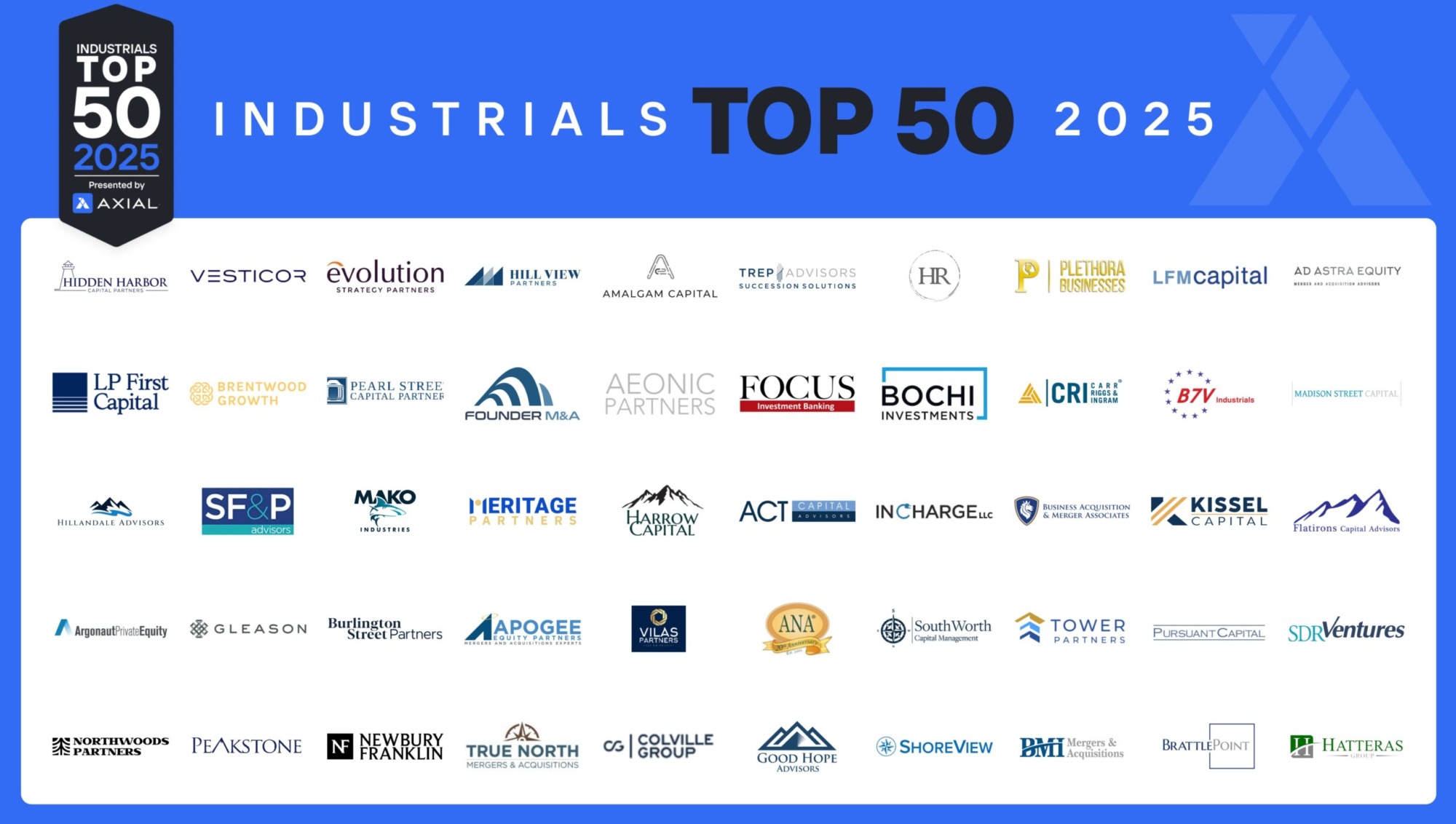
The Top 50 Lower Middle Market Industrials Investors & M&A Advisors [2025]
Industrials remains the most dominant sector in Axial deal flow, representing more than 25% of all deals brought to market…
What does it take to roll up over 400 niche software companies into a $2.1 billion annual revenue empire with 13,000 employees, and why do smaller companies continue to join? That’s exactly what Constellation Software (TSE:CSU.TO) has done. We sat down with Jim Fedigan, Group CEO at Jonas Software, one of Constellation’s major portfolio groups, to get a peek into their approach. In particular, Jim is Group CEO of Jonas’ Club & Hospitality group, who himself came to Jonas by way of an acquisition almost 15 years ago.
Jim: Constellation, and thus Jonas, is structured into portfolio groups by verticals. I have responsibility for two markets: clubs and hospitality (including hotels). I work with the leaders of our companies in those markets, but a large part of my time is spent on M&A, helping us grow the vertical markets we are in or want to be in.
Jim: We buy vertical software companies across more than 20 different markets and growing. We like companies that are leaders in their niche, and we look at businesses globally. Some notable areas of focus for us are hospitality, club, spa and fitness management, construction, and food service. We’ve acquired over 70 businesses in the last 15 years. They stay independent and generally continue to be run by the existing management teams, and we’ve never sold one.
Jim: Yes, there instances when we would, but it’s not at the top of our list.
Jim: It’s different for everyone. We’re a great option for people who have founded their own company, want to retire or take on another opportunity, but also want a good home for their business. We don’t buy and slash headcount. We don’t have to answer to banks for debt and we invest for the long term. We care about performance no doubt, but we can be more patient than most other buyers. We’re a great option if you still want to remain independent but still have access to broader opportunities and resources.
PE firms buy companies and lever them up with debt to improve their returns. They aren’t going to miss their performance targets, even if that means cutting important customer support or R&D resources. That undermines the foundation of a business and ultimately gives it a short shelf life.
Jim: What doesn’t work is telling our executives what to do. Instead, we try to empower people to take initiative and make changes. When you combine that with best practices learned over 400-plus acquisitions, it becomes easier to see where and how to make changes.
In some cases with our acquisitions, the owner moves on and one of the existing senior executives takes the leadership role. Part of my job is to help them adjust to their new role, and part is to help them take advantage of Jonas best practices. While we do have documentation for this, the most important thing is the Jonas culture of sharing. It starts at the top. The majority of the group leaders at Jonas have been here 10-plus years. They share their lessons and that practice works its way down.
I also try to put people from our different companies together all the time so that we can learn from each other. It’s helpful to create personal relationships and friendships, and that is helped by the fact that we keep our acquired companies forever.
Jim: I tell people we are talking to, ‘In 2005, I was standing where you are now.’ You know something is going to change when a deal happens. As management, you understand the realities but I tell people that Jonas knows what they are doing and with the right attitude and ambition, people can learn a ton and take advantage of the opportunities Jonas/CSI provides.
It’s unsettling in the moment, but the future is bright. The most important thing is to be open to learning and to new opportunities.
Jim: From an M&A standpoint, historically most Constellation acquisitions were businesses that private equity thought were too small but we’re now seeing big PE firms moving down market. This has created increased competition for us, but we are still able to find good business to acquire when our strategy aligns with the owners’ goals.
From a technology perspective, software companies always have a natural evolution. Infrastructure changes are transformational. For example, first we were thinking about the cloud, then IoT (Internet of Things), then AI and predictive capabilities. The possibilities get mind boggling, but in an exciting way.
Jim: It doesn’t change anything at all. All we ask is a seat at table to have the conversation with a seller and explain our approach. We like to think we are a good home for vertical market companies to thrive.
